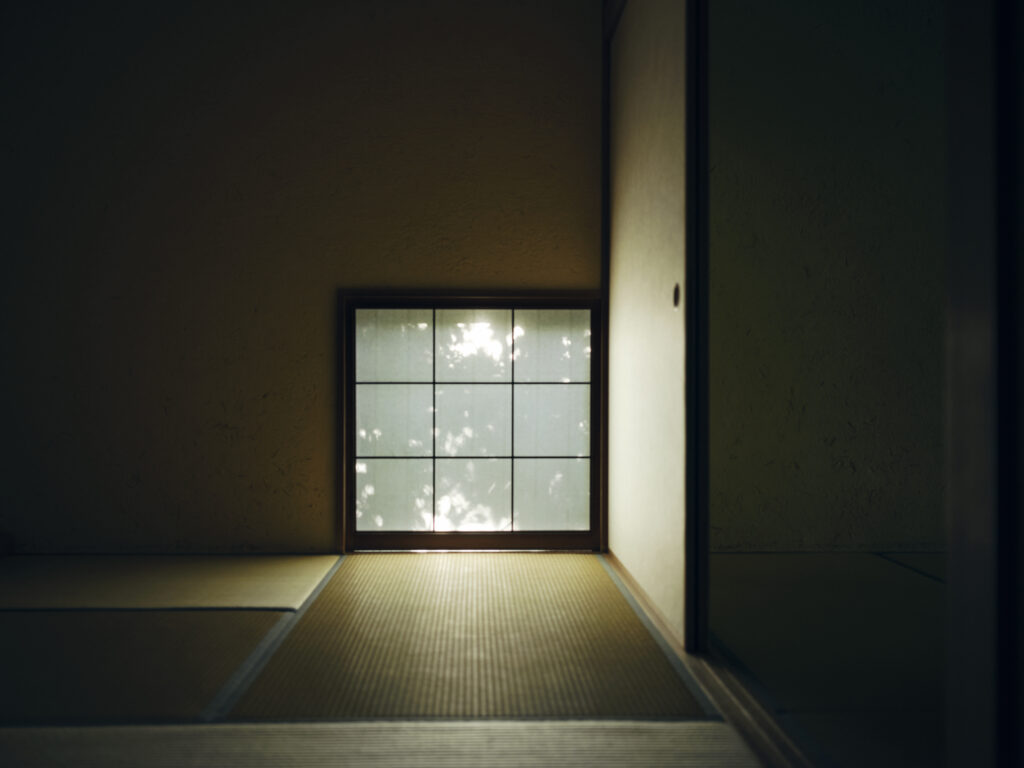3.4 Temples and ryokan
Sachiko: It is also interesting to see how the project that you did in the temples in Kyoto was connected to hospitality! Zen temples and ryokan are quintessentially Japanese, they both represent Japanese culture and Japanese mindset. So many things there still reflect the traditional Japanese lifestyle which has almost disappeared in modern normal life in the cities. People’s lifestyle has changed. I mean, when you look at the pictures on today’s architecture magazines, you see very nice flooring, but no tatami 畳 or bamboo floor. You see doors, but no shoji 障子 paper screens or clay walls. You seldom see traditional materials that are “breathing”, by this I mean, which are natural and age with time. People are likely to forget the smell and gentle touch of tatami, bamboo, wood or clay …also the gentle quality of the light filtering into the room through shoji paper screens from the garden.

In temples and high-end ryokan, you can still experience Japanese traditional aesthetics at its best. But I must say that there are also some differences: to the Japanese, temples are obviously more important than ryokan, and people usually cannot stay at a temple for a few days – that is why you were so lucky! – they visit the temples and then they leave on the same day. On the contrary, people stay at a ryokan overnight and sometimes for a few consecutive days. The quality of the experience is therefore different: although the aesthetics may be similar, at the temple the experience is shorter and more, say, “formal”, whereas at a ryokan guests have more time and the atmosphere is definitely more laid back… Normally our guests are very relaxed and quiet, they wear yukata 浴衣, they really take the time to enjoy the baths, the food and the service, the atmosphere…That is something that you normally cannot do at a temple! So, I’m sure: staying at a ryokan is the best way to experience the real Japan.Scott: I think that what the Zen temple and ryokan stays have in common is a desire and opportunity to let go; and, to discover that you actually need less to feel more. You become, potentially, more resourceful and self-aware in both settings.





